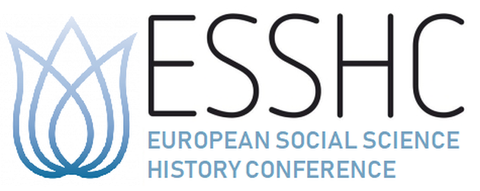Mar 26, 2021
Lectures by Prof. Dr. Dagmar Ellerbrock and PD Dr. Silke Fehlemann, march 27th:
Prof. Dr. Dagmar Ellerbrock:
"When does Violence Start? Insults, Shaming and Invectivity as Emotional Push of Violence"
Abstract
It all starts from shame. Shame is considered the most social of all feelings. Shame also proved to be the master tool of transformation. Furthermore, shaming can translate into practices of invectivity. The paper shows how invective practices had the capacity to start violence, to change social formations and to heavily influence the transformation of political order in interwar Germany. It is argued that invectivity was used as strategic tool to destabilize the democracy of Weimar and was also crucial for the transformation of political order. By investigating the emotional impact of practices of shaming, the paper sheds new light to the affective pre-conditions and structures of violence.
Including recent research on (neuro)physiological effects of shaming and exclusion it is pointed out that invective practices need to be understood as physical violence. These findings are challenging for the definition of violence. Recognizing the physical implications of emotional degradation and integrating it into historical research is a stimulating as well as a difficult task – the paper provides conceptual ideas as well as empirical evidence to start this pressing discussion
 © Robert Jentzsch
© Robert Jentzsch
Principal Investigator of Project H
NameProf. Dr. Dagmar Ellerbrock
Send encrypted email via the SecureMail portal (for TUD external users only).
Collaborative Research Centre 1285 "Invectivity. Constellations and Dynamics of Disparagement"
Collaborative Research Centre 1285 "Invectivity. Constellations and Dynamics of Disparagement"
PD Dr. Silke Fehlemann:
"War Related Insults during the Interwar Years"
Abstract
For the interwar years the relationship between cultures of memory and violence still lack scholarly attention. Although the conflictual and competing aspects of remembering in the interwar years have been worked out, concrete forms and practices of invectivity related to the remembering of war have received less attention until now. The behavior of various protagonists during the First World War was an inexhaustible reservoir of insinuations and insults in the interwar years. Alleged “cowardice” or "shirking" served as tools for frequent degradations in political discourses of Weimar Republic. Even pacifist texts and speeches presented a lot of affronts, which offended representatives of soldierly nationalism. When it was alleged, for example, that the young soldiers had cried for their mothers during the attacks, this attribution was interpreted as a tremendous insult by right-wing circles. These invectives were inscribed in cultures of memory.
The paper will systematically analyze the connection between invectivity and the memory of war on the one hand and their entanglements with different milieu cultures on the other hand. Furthermore, the practical transgressions from verbal accusations to physical violence should be looked at, as far as they become clear in various court files of libel actions which will be used for analysis as well as various self-testimonies.
 © LICHTSCHACHT
© LICHTSCHACHT
Research Associate in Project H
NamePD Dr. Silke Fehlemann
Send encrypted email via the SecureMail portal (for TUD external users only).
Collaborative Research Centre 1285 "Invectivity. Constellations and Dynamics of Disparagement"
Collaborative Research Centre 1285 "Invectivity. Constellations and Dynamics of Disparagement"
Visiting address:
Falkenbrunnen, Room 277 Chemnitzer Straße 48b
01187 Dresden

